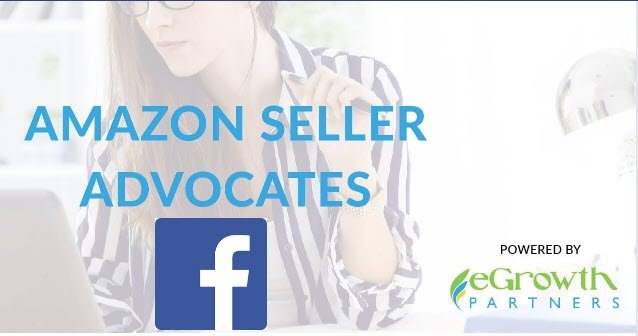There is a lot of confusion, frustration and pain associated with infringement complaints. Whether you are the brand trying to stop counterfeiters from ruining your brand and reputation or a seller overwhelmed by IP complaints, nobody enjoys this process. Amazon, of course, doesn’t make it any better. With their refusal to intervene and heavy-handed punishments for minor infractions, it’s enough to make anyone despair. On top of all that, IP law is really complicated and tricky. IP attorneys command a premium because of the years of extra training they take. In the world of the law, these guys are the rocket scientists. What is an Amazon seller to do? Seemingly overnight Amazon decided that we all needed to become infringement experts and that we are 100% liable if we get it wrong. We decided to get answers to the most commonly asked IP-related questions from IP attorney, Jeff Breloski of ATLawIP , LLC. Jeff has helped many of our clients work out infringement problems with rights owners and Amazon, as well as brands and sellers. He has a stellar track record of success and is a warrior in the courtroom.
Q. Can A Product Be Considered Counterfeit If It’s Not in Its Original Packaging?
Jeff: Counterfeiting is a very special subset of trademark infringement. In order to be counterfeit it has to be fake. A perfect example is Nike. Some people use the swoosh and then instead of spelling Nike on the shoes, they put N-I-I-K-E and they try to pass it off as real Nike. Counterfeiting is when something is made to look exactly like the real item, but it’s not. If sellers don’t use the original packaging, it’s not considered counterfeit. It may be considered trademark infringement.
Keep in mind that all counterfeit is trademark infringement, but not all trademark infringement is counterfeit.
Q. When A Seller Refuses to Verify His Supplier to The Brand Owner, Does That Give the Brand Owner Better Ground to Stand on in his/her Counterfeit Claim? Are Sellers Required to Provide Proof of Authenticity to A Brand?
Jeff: Brand owners can require sellers to provide proof of authenticity to continue selling a product. What the brand owner is really looking for is how the seller got the products and whether the supplier or distributor, which is usually bigger than the seller, is liable for counterfeiting or just selling grey label goods.
eGP Note: We usually recommend that our clients comply with polite verification requests if they are confident that their inventory is being sourced from legitimate, authorized sources – including retail arbitrage receipts. Some of our clients say, “but then they’ll know where we are buying our goods and they’ll shut us off!” That’s quite possible. But they shouldn’t file bogus trademark complaints against you, and you should be able to at least sell out of your current inventory. If they want you off their product listing, they are going to get you off. The issue is how painful will it be? The brand has the right to control its distribution channels. The brand WILL be able to get your seller information, and they most likely will send you a “cease & desist” letter. All those polite verification requests? They are the brand’s due diligence in preparation for a subpoena and possible lawsuit down the road.
How Can Sellers Best Position Themselves to Avoid Infringement Claims?
Jeff: I recommend buying from authorized distributors that are licensed to sell on Amazon, or directly from the rights owner.
eGP Note: While Amazon will accept a retail receipt in order to sell a product on the platform, brands may have a different agenda. If they are concerned about sellers not following MAP or selling without authorization on Amazon, for example, then they will continue to try and find out where you buy from and to cut off your supply. It is illegal for them to make infringement claims if your product is genuine, but they can go to the distributor and cut you off. Most brands we work with will let a RA/OA seller sell through their inventory but will often issue a cease and desist such that the RA/OA seller cannot add new inventory or sell their products on ANY platform.
What Are the Most Common Mistakes You See Sellers Make That Lead To Infringement Claims?
Jeff: The most common mistake is purchasing from bad sources, like a yard sale, thrift store or one-off discount store.
eGP Note: We see a lot of problems with liquidation as well. Closeouts direct from the brand owner or authorized distributor are OK but buying a truckload of banana boxes from retail stores will put a seller at risk because you can’t prove authenticity.
Are There Any Legal Ways for Brands To Find Out Who A Seller Is On The Platform?
Jeff: Absolutely. It’s called a subpoena. Once you file a lawsuit, you then have subpoena power, so you can subpoena Amazon to provide the seller information.
eGP Note: Ideally, a brand can find out seller information without a subpoena and save that for the really stubborn cases. Our Brand Enforcer™ software and service program helps brands verify the authenticity of inventory being sold on the platform and where the seller is buying it from – in a compliant and legal way. What we like best about this solution for brands is that honest sellers are unharmed, and no bogus complaints are filed with Amazon.
What Do You Think About Amazon’s New Neutral Patent Arbitrator Program?
Jeff: Amazon is trying to streamline patent claims and by doing so, sellers don’t get a lot of the tools that you would in a federal district court or the United States’ Patent and Trademark Office’s Patent Trial and Appeal Board. I don’t particularly like that it’s very limited in the claims or defenses sellers can make.
eGP Note: The thing we like least about this program is that if you don’t receive or see the first notice from Amazon that someone has filed a complaint through it, you are automatically screwed. If you don’t respond in three weeks, the suit is determined in favor of the complainant and you lose the right to sell that product on Amazon forever. We’ve had this happen to clients, and there doesn’t seem to be a way around it. In one client’s case the notification was sent to an employee inbox instead of the main email for the account. This employee overlooked it because he doesn’t get important notifications, so the company lost the ability to sell one of its top performing ASINs. What irritated us about this program, also, is that the rights owner was using this as a tactic to get rid of competitors rather than genuinely enforcing its rights. There are some lawyers out there who file dozens of these for their clients as a way to clean up listings and get rid of competitors. If the other side doesn’t respond in time, they are gone. They know that many sellers are too afraid to fight or don’t have the resources to hire an IP attorney to go through this process even though it is cheaper than a lawsuit. One by one these bullies get rid of honest and dishonest sellers alike, and it costs them nothing if the other side doesn’t fight. Our client was ready to fight but didn’t get the chance because of a lost email.
What Are the Legal Consequences For A Brand That Falsely Accuses A Seller Of Infringement?
Jeff: Sellers can do a declaratory judgment action for invalidity of the intellectual property or a declaratory judgment of non-infringement. They can also file tortious interference with business relations or business contracts. Bottom line, there are a lot of remedies. The only problem is that those remedies usually involve a court, so they can be expensive.
eGP Note: We’ve seen recent lawsuits where sellers have filed against a brand and WON. Brands beware, just because Amazon allows you to make claims easily through Amazon Brand Registry, that doesn’t exempt you from the consequences of filing bogus ones. If you are not clear whether or not your issue is trademark, get professional advice from an IP attorney first. Also, be clear on what exactly your legal team is doing for you. Law firms and other companies that used to file cases all the time have gotten their clients in trouble legally. We’ve started to see some changes from companies that used to terrify honest sellers on the platform. We noticed that IP Shark, for example, has changed its approach to be closer to Brand Enforcer™ and is now asking sellers for verification rather than threatening them (as much! They still hint at Brand Registry takedowns if you don’t comply) or filing bogus takedowns through Amazon Brand Registry.
What Do You Think About General Exclusion Orders?
General Exclusion Orders fast-track patent litigation cases that would normally take 3-to-5 years into 9-to-12 months. Legal fees for these types of cases are typically a minimum of $1 million for each side to cover attorneys, e-discovery, case management, paralegals, expert witnesses etc. So, there needs to be serious money on the line to make sense.
eGP Note: We are seeing more and more products being taken off the platform because of a GEO. So far, sellers have not been penalized for these takedowns on Amazon beyond losing the right to sell the products. There is no appeal for these cases. If you think a product was taken down by accident and that it is not part of a GEO, we’ll give it a try, but they don’t have an appeal process for this kind of takedown, just so you know.
Is There Anything Else Sellers Should Keep in Mind Regarding Infringement Claims?
Jeff: I would steer clear from selling books and t-shirts on Amazon. I’ve seen too many IP- related issues in those categories and it’s not worth the bang for the buck, since they’re usually infringing.
eGP Note: Jeff has been able to negotiate settlements with publishers, license holders and others on behalf of our clients, but he’s right that these are messy, difficult and expensive. Cynthia used to sell textbooks on the platform and stopped years ago when she got her first inauthentic complaint for a 1972 version of Carl Sagan’s “Cosmos.” Used books are now subject to the same authenticity proof as new books – invoices and receipts. It is a tough market if you are not experienced at picking out counterfeits and/or if you are buying your books from bulk US Post Office auctions. The publishers are playing hardball. In addition, while Merch by Amazon now has a small seller performance team, the reality is that they aren’t going to budge on IP complaints unless you have definitive proof that you are not infringing like a licensing agreement with the rights owner. eGP does not handle Merch suspensions because we don’t want to take sellers’ money for a lost cause. We DO refer those cases to Jeffrey who is sometimes able to get a settlement and a retraction for the seller.
Let eGrowth Partners Help You!
We’ve joined with Jeffrey, and other top IP attorneys, to provide our clients with the best possible solutions to Amazon intellectual property infringement issues. Whether you are a brand owner looking to protect your IP on the platform or a third-party seller accused of a violation, we can steer you to the right solution for you. Most of our partners offer reduced rates or package deals for our clients depending on the case. For a reference list, contact us at hello@egrowthpartners.com or 972-843-5535 to talk about your situation.
For brands who want a compliant, cost-effective, legal way to get unauthorized and/or infringing sellers off their product listings on Amazon, eBay or any one of 120+ other eCom platforms, contact Kevin at: or sign up here for a free demo of Brand Enforcer using your brand’s data. All we need is your brand name and two business days to prepare your demo.
HOW CAN WE HELP YOU?
We are known for helping suspended sellers get reinstated, but our goal is to keep sellers from being suspended in the first place. We have more than 25 team members passionately working 7 days a week to protect Amazon sellers like you.
As leaders in the world of Amazon compliance we’ve worked with thousands of sellers over the years. We built our own outsourced team to help sellers manage their accounts and now we are offering our unique expertise, training and management skills to you. Introducing High Touch Smiles – find out more and schedule an appointment
Contact us for specific advice on your situation:

Email: hello@egrowthpartners.com
Website: egrowthpartners.com
Facebook: egrowthpartners
Twitter: eGrowthPartners
Phone: 1-972-432-6398
Never miss an important update from us: Join Our Mailing List
JOIN US!
Upcoming speaking engagements and conferences for Cynthia Stine include:
- October 10, 2019 – by Seller Labs, Speaker – Virtual Conference. Links to conference upcoming.
- December 10, 2019 – Tribe Works, Speaker – NYC
- February 2020 – eCommerce Fuel, Attendee – San Antonio, TX
- February 25-March 1, 2020 Unconference, Attendee – Orlando, FL
- March 23-25 , 2020 PROSPER, Speaker – Las Vegas
NEWS NUGGETS
- From CNBC – eBay CEO Devin Wenig is stepping down, to be replaced by CFO Scott Schenkel as the interim CEO. Read the story.
- Amazon’s suspended third-party sellers aren’t receiving the 30-day notice period they thought Amazon inked. Read the full story on Business Insider. “Nobody likes that your business just shuts down overnight,” Amazon seller and consultant Cynthia Stine told Business Insider. “They keep your money, they keep your inventory, and you’re looking at a very vaguely worded notification document that doesn’t really tell you what they’re looking for.” The new policy, which Amazon rolled out on August 16th, appears to be Lost In Space for now.
- Online sellers can nominate their businesses for the Amazon Small Business Awards. Winners in three categories will receive a prize package of account management, advertising credit and promotional support on Amazon.com. eCommerceBytes has the full story.
Our Facebook Group Amazon Seller Advocates just passed 900 members! Join us for discussions of all things affecting Amazon sellers. Understand the context behind news announcements, changes to TOS and more! JOIN US!

Click here to join our Facebook Group!
MEET THE AUTHOR
About the Author, Veronica Perez:

Veronica has been with eGrowth Partners since the early days and has a proven track record of handling hundreds of successful reinstatements, including some of the most challenging cases. She brings with her 25+ years of communications, crisis management and business consulting expertise. Cynthia Stine calls Veronica “our miracle worker”.




